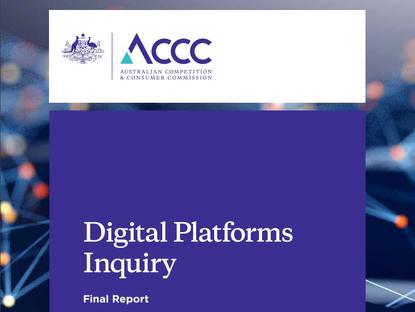ACCC wants 'specialist digital platforms branch' with additional powers
- 26 July, 2019 11:37

The Australian Competition and Consumer Commission has recommended the government establish a ‘specialist digital platforms branch’ to closely monitor the conduct of major online platforms likes Facebook and Google.
The branch would sit within the ACCC and would have “additional proactive investigation, monitoring and enforcement powers” to better monitor the dominant digital players.
The powers would enable it to hold extended public inquiries, “periodically and systematically” collect data from the platform companies, and “compel information on an ad-hoc basis”.
The branch would also “test” Facebook and Google algorithms for anti-competitive or misleading behaviour.
“We can do that by throwing a lot of things at those algorithms, if we find things we’re unclear of then we’d have the ability to get information form the digital platforms," said ACCC chair Rod Sims in a press conference today.
"This will allow serious scrutiny of the algorithms of Facebook and Google," he added.
The reliance of Australian businesses on Google and Facebook as a means of reaching consumers has given them a “critical position” in the economy, the ACCC said in its Digital Platforms Inquiry final report released today.
Combined with their huge market power and the “opacity and complexity of these markets” put the enforcement of competition law and consumer law at risk, the commission note.
Establishing the specialist branch would allow for better scrutiny of potentially anti-competitive behaviour and consumer harms.
“It will shine a light on inefficient outcomes in these markets in order to improve outcomes for consumers and business users,” the report’s recommendation to government state.
The new branch is one of 23 recommendations in the 600-page report, which span competition law, consumer protection, media regulation and privacy law.
“The dominant digital platforms’ response to the issues we have raised might best be described as ‘trust us’,” Sims said.
“There is nothing wrong with being highly focused on revenue growth and providing increasing value to shareholders; indeed it can be admired. But we believe the issues we have uncovered during this Inquiry are too important to be left to the companies themselves," he added.
